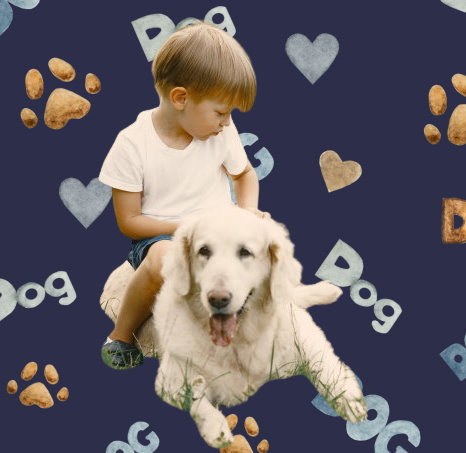Welcome to Dog Training Newbies !
Welcome to Dog Training Newbies !

When it comes to training our beloved canine companions, understanding their behavior is an essential foundation for success. Dogs have unique instincts, communication methods, and social structures that shape their behavior. By gaining insight into their world, we can tailor our training methods to effectively communicate, motivate, and guide them. In this article, we delve into the importance of understanding canine behavior and how it can lead to successful training outcomes, fostering a harmonious relationship between humans and dogs.
INSTINCTS AND NATURAL BEHAVIORS
Dogs are descendants of wolves, and while they have evolved over centuries of domestication, they still retain many of their ancestral instincts. Understanding these instincts helps us comprehend why dogs behave the way they do. For example, their prey drive, herding instincts, and pack mentality influence their behavior and can be harnessed in training. Recognizing and respecting these instincts allows us to work with them, rather than against them, in our training efforts.
COMMUNICATION AND BODY LANGUAGE
Dogs primarily communicate through body language, and being able to interpret their cues is crucial for successful training. Learning to read their signals, such as tail wagging, ear position, and facial expressions, provides insights into their emotional state and intentions. This knowledge enables us to adjust our training approach accordingly, ensuring clear and effective communication with our canine companions.
SOCIALIZATION AND PACK DYNAMICS
Dogs are social animals with an innate need for socialization. Early and ongoing socialization plays a vital role in shaping their behavior and overall temperament. By exposing dogs to various environments, people, and other animals in a positive and controlled manner, we help them develop confidence, reduce fear and aggression, and improve their ability to adapt to different situations. Understanding their social nature and the importance of positive socialization sets the stage for successful training and a well-adjusted dog.
POSITIVE REINFORCEMENT AND MOTIVATION
Positive reinforcement is a powerful tool in training, and understanding what motivates your dog is key to its effectiveness. Each dog is unique, and their motivations can vary. Some dogs are food-driven, while others respond better to praise, play, or toys. By identifying what rewards are most enticing to your dog, we can tailor our training methods to keep them engaged, focused, and motivated to learn. Positive reinforcement not only strengthens the bond between owner and dog but also encourages desired behaviors and fosters a positive and cooperative training experience.


CONSISTENCY AND PATIENCE
Consistency and patience are vital when working with dogs. Training is a gradual process, and dogs need repetition and reinforcement to understand and retain desired behaviors. Consistent cues, commands, and expectations help dogs learn and respond predictably. Patience is essential when encountering challenges or setbacks during training. Recognizing that dogs learn at their own pace and maintaining a calm and positive demeanor allows for a more productive and successful training experience.
PROFESSIONAL GUIDANCE AND SUPPORT
Sometimes, seeking professional guidance can greatly assist in understanding canine behavior and addressing specific training needs. Professional dog trainers have extensive knowledge and experience in working with different breeds and behaviors. They can provide valuable insights, personalized training plans, and targeted solutions for specific challenges, ensuring a successful training journey for both you and your dog.
Understanding canine behavior is a fundamental aspect of successful training. By delving into their instincts, communication methods, and social structures, we gain valuable insights that allow us to effectively communicate, motivate, and guide our dogs. Through positive reinforcement, consistent training, and patience, we foster a harmonious relationship and create a well-behaved and happy canine companion. So, let's embark on the journey of understanding our dogs, respecting their instincts, and building a strong foundation for successful training and a lifelong bond of love and companionship.